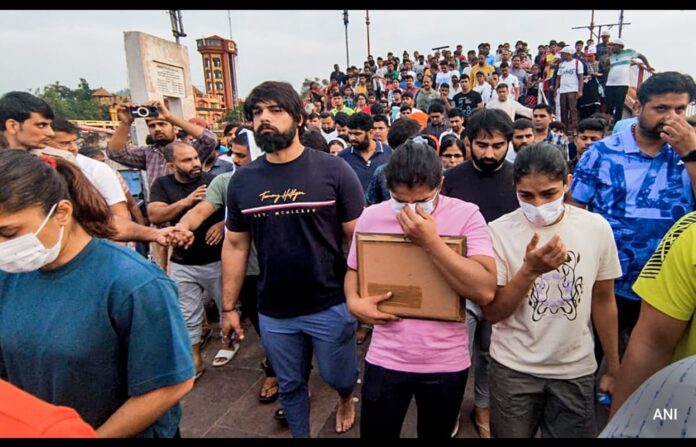In a recent development within the Indian Wrestling Federation (WFI), female wrestlers have come forward with allegations against the WFI Chief and demanded concrete evidence to support their claims. This demand for proof has shed light on the inherent difficulties faced by women within the federation and has garnered attention within the wrestling community. The allegations against the WFI Chief, which were initially made by several female wrestlers, accused him of engaging in discriminatory practices, favoritism, and mismanagement of funds within the federation.
These accusations have sparked controversy and prompted discussions regarding gender equality and transparency in sports organizations. However, in an unexpected twist, the female wrestlers have now been requested by the WFI to provide substantial proof to substantiate their claims. This move has drawn criticism from various quarters, with many questioning the fairness of such a demand and expressing concerns that it may discourage other victims from coming forward in the future. The wrestling community, both in India and internationally, has been closely following the unfolding events.
The allegations have sparked debates on the importance of creating a safe and inclusive environment within sports organizations, particularly for female athletes who often face unique challenges. Advocates for gender equality in sports argue that such incidents highlight the need for comprehensive policies and mechanisms to address gender-based discrimination, harassment, and abuse within sporting bodies. They emphasize the significance of fostering an environment where athletes, regardless of gender, feel empowered to voice their concerns without fear of repercussions. The WFI, on its part, has pledged to conduct an internal investigation into the allegations, promising transparency and fairness throughout the process.
They have also expressed their commitment to promoting gender equality and ensuring a level playing field for all wrestlers. The unfolding controversy surrounding the WFI Chief serves as a wake-up call for the entire Indian wrestling fraternity, prompting a collective introspection into the prevailing power dynamics and systemic issues within the sport. It has ignited discussions on the importance of accountability, governance, and the overall well-being of athletes, especially in a domain as physically demanding and competitive as wrestling. As the wrestling community awaits the outcomes of the investigation, the hope remains that this incident will serve as a catalyst for positive change within the WFI and create a more inclusive and supportive environment for all wrestlers, regardless of their gender.


